Keeping students excited about learning and closing the gap in funding education are issues shared by educators and librarians across the country. Often, we find a willingness on the part of libraries to engage with their local schools only to run up against roadblocks as they pursue those partnerships. And, with today’s educational standards and requirements, it can be difficult to establish those relationships. Overworked teachers have a hard time imagining how they can make the time to include something else in their day and administrators are resistant to allowing outside activities in the classroom. In many communities, cutbacks in school budgets have made field trips to the public library a thing of the past. This can mean fewer opportunities for kids to have interactions allowing them to fully discover all their public library can offer.
As a library consultant working with public libraries nationwide, I’ve heard from thousands of community members, including educators and library staff, as we lead discussion sessions across the country. During those sessions, it’s not uncommon for participants to question whether the local schools and libraries are working together. The comments expressed convey that schools seem to be an obvious path to getting students and their families more engaged with the many services their local library offers. It is also viewed as a natural way that two entities sharing similar goals can make the most of available budgets. It’s clear the participants expect these relationships to exist and provide expanded learning opportunities for the students and their families.
And they do exist. Over time, I’ve encountered some great examples of partnership and collaboration. Here are some of the top examples that are fostering student learning opportunities while supporting educators.
Expanding materials available to students and teachers
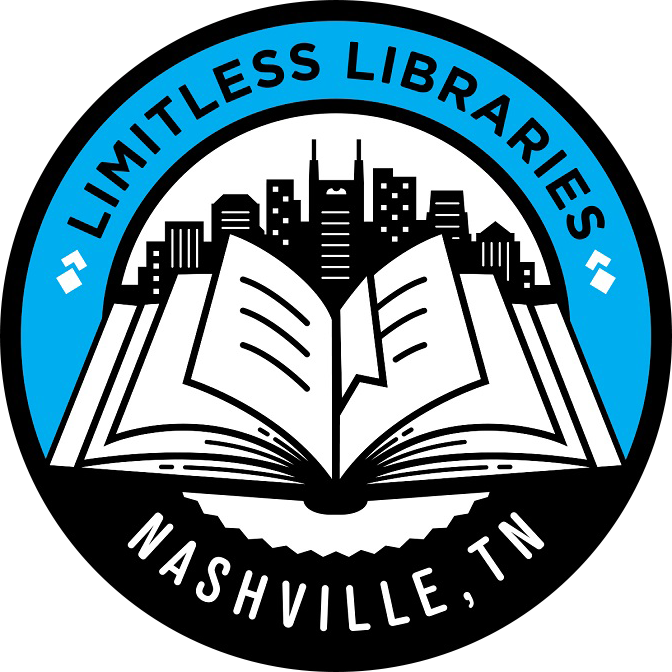
One of the oldest and most successful examples of this is Nashville Public Library’s Limitless Libraries program. Initiated in 2009 as a pilot program with three district high schools, it is a cooperative program between Nashville Public Library and Metro Nashville Public Schools. Their goals: improving school libraries, fostering resource sharing between the two institutions, and improving student and teacher access to learning materials. Now student IDs double as NPL library cards so that all students are able to check out public library materials which are delivered directly to the schools. In the 2020-21 school year students checked out 33,000 books, DVDs, and audiobooks from the Nashville Public Library through the program. 90,000 students, teachers, and librarians were served and 80% of teachers surveyed used Limitless Libraries to support classroom instruction. Limitless Libraries’ buying power saved the school district $500,000.
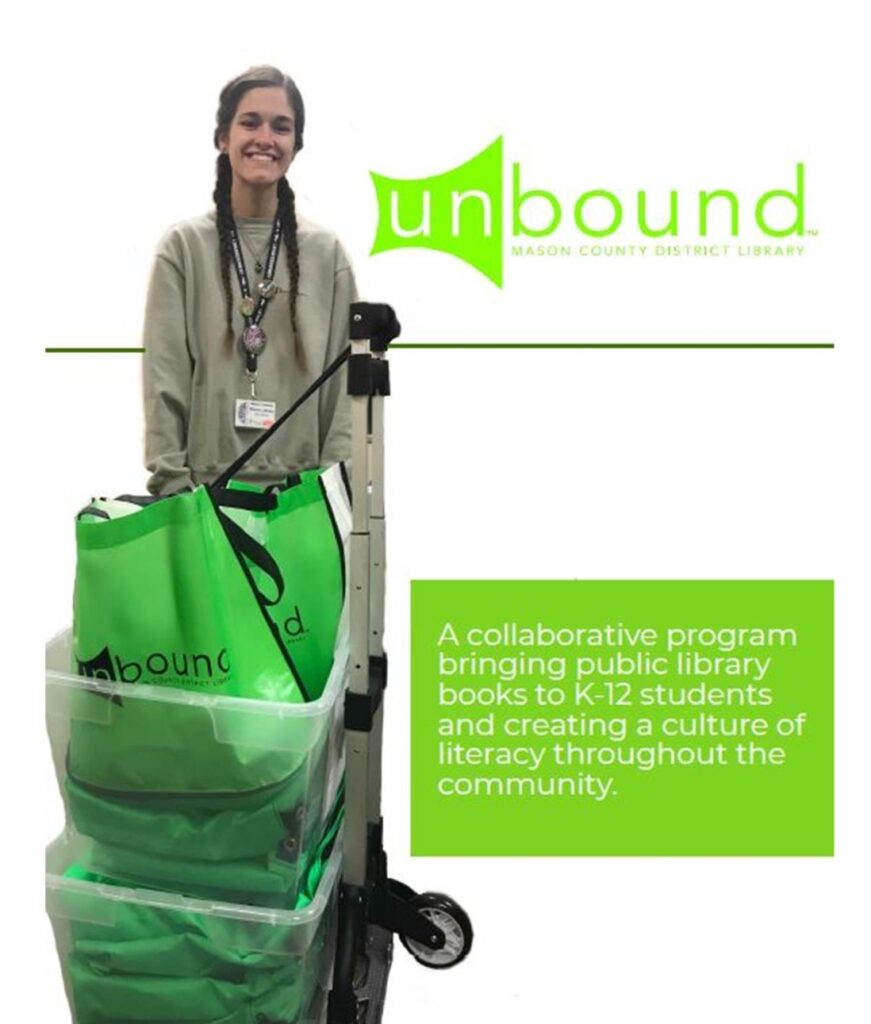
Successful programs like this are not limited to urban libraries. The Mason County District Library in Michigan is in a more rural area but has a similar program called Unbound. Begun in the 2018-19 school year to create a culture of literacy throughout the community, this collaborative program’s goal was to create a library account for each student in the district, offering public library books to K-12 students. Through the Unbound program, students can request books from the public library which are delivered directly to the classrooms. In 2019 the Mason County District Libraries delivered 4,697 books to MCC schools, saving the school system $56,178. The program has now been extended to additional schools in the area.
Collaborating on hands-on learning
When schools and public libraries collaborate, they bring about opportunities to allow students more profound learning experiences outside of the classroom. We hear from students, parents, and teachers of instances where subjects were introduced in the classroom without opportunity for further exploration by interested students. Examples of this include subjects like coding at the middle school level with events like Coding Clubs springing up at the public library to meet that need.
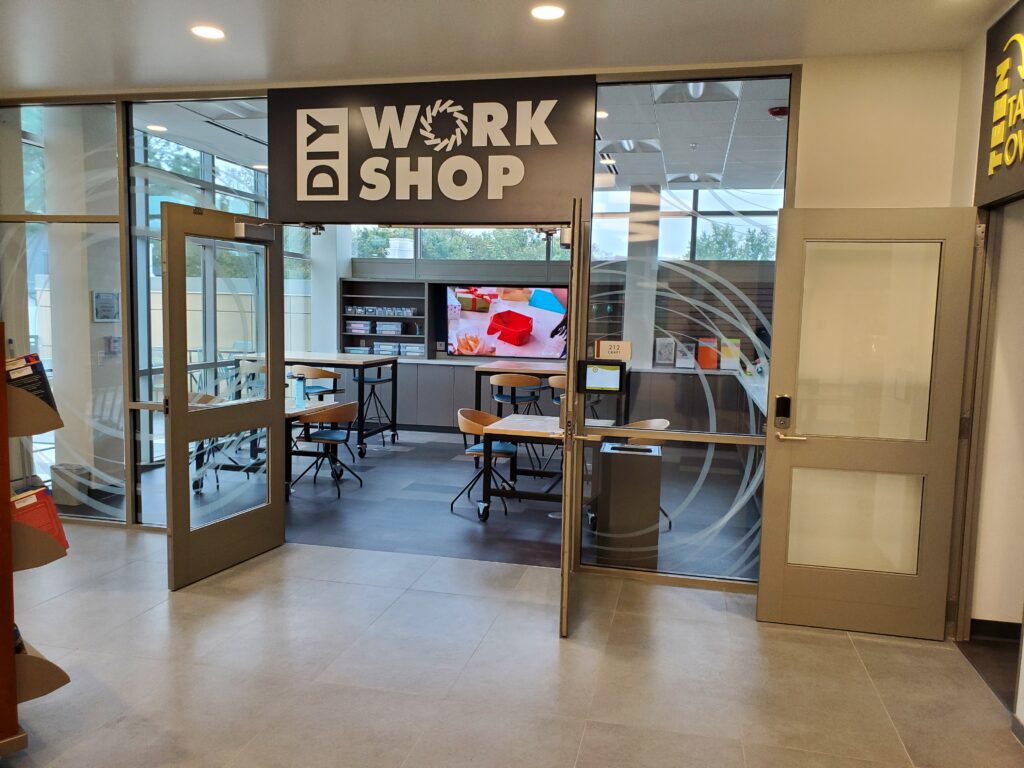
Makerspaces represent another example of an opportunity to extend learning. Members of the public are frequently concerned about the duplication of resources between schools and public libraries. However, when there is good coordination between the two, students can access the equipment they already know how to use so they can readily continue to learn, discover, and explore in less structured ways to improve skills. As an added benefit, students can share what they have learned with the adults in their lives They’re excited to demonstrate what they have learned or teach and mentor their parents, grandparents, and siblings!
Engaging students in community projects
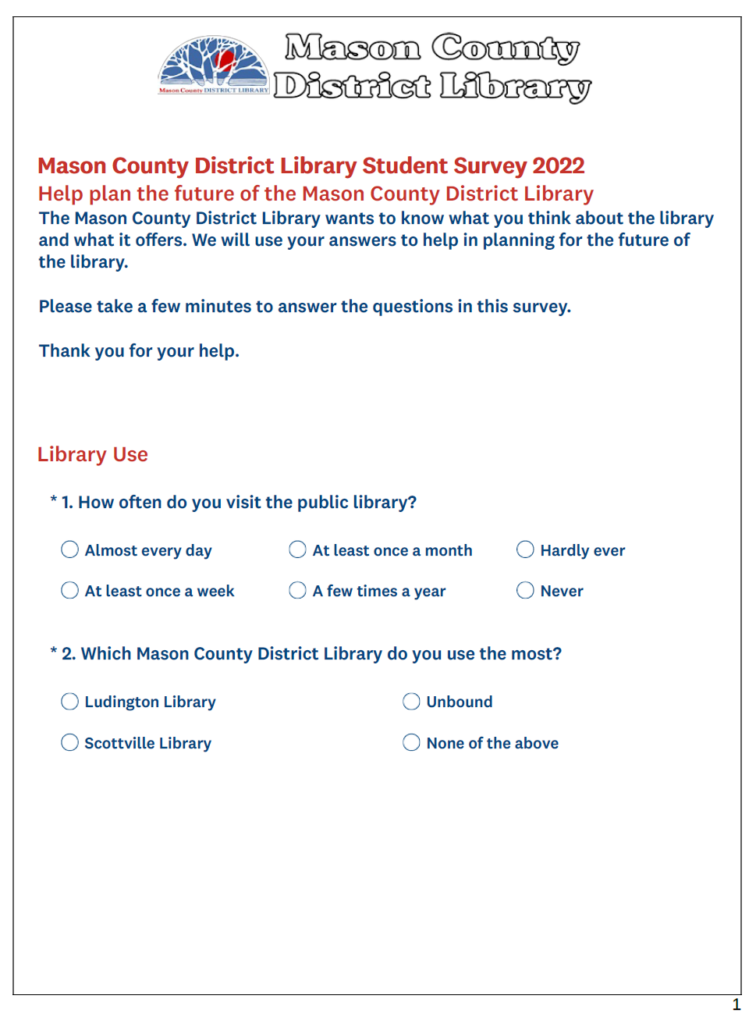
Ways for students to participate and learn about civic engagement represent an opportunity sometimes overlooked. With the cooperation of the schools, this can happen at many levels. During our strategic planning process with the Mason County District Library, we developed a short survey deployed to 2nd-5th grade classrooms. It allowed us to hear directly from the students what they wanted to see from their public library. The exercise was not only fun for the kids, it also let them know they can have a voice in the direction of their community resources. Hopefully, successful examples like this one can help convince school administrators that the positives of this collaboration can outweigh the fear that it takes away from classroom instruction.
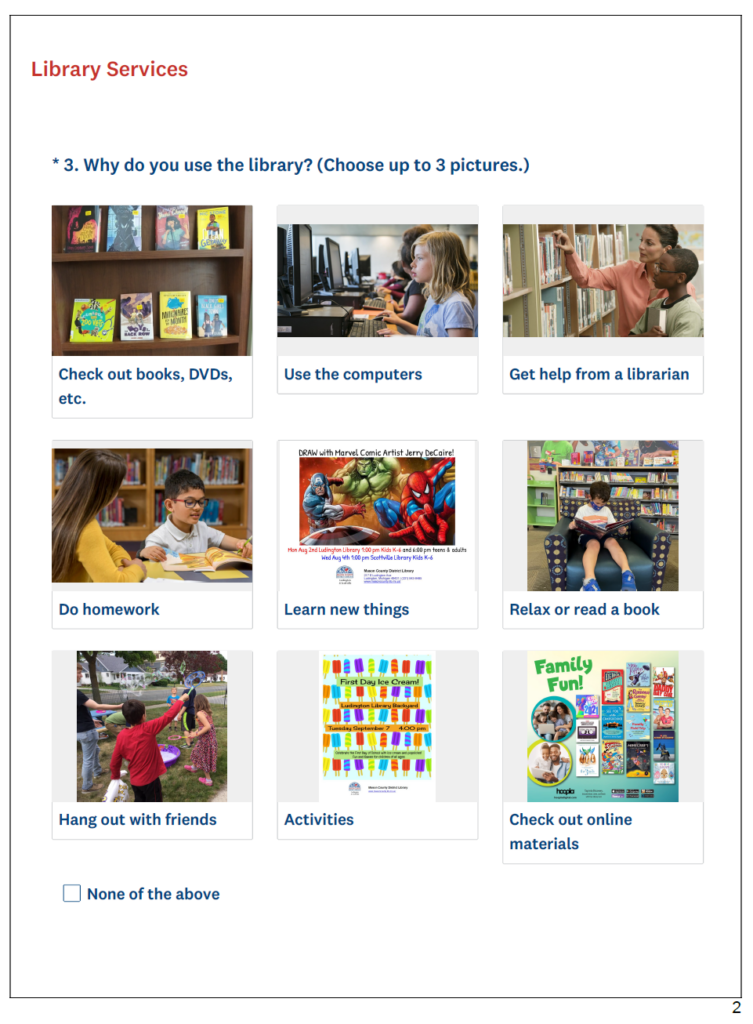
Other libraries provide leadership opportunities for middle and high school students through Teen Volunteer positions and Teen Advisory Groups. Teen Volunteer positions range from helping with activities such as providing support during busy Summer Reading programs, mentoring younger students in reading or technology, shelving materials, or supporting other library operations. Teen Advisory Groups represent a way libraries can glean much-needed feedback, with teens advising the library on what is important to them in terms of the design of teen spaces, teen programs, and the development of teen-oriented collections.
The Sun Prairie Public Library in Wisconsin goes one step further through positions on their Board of Trustees and the Friends of the Library Board for high school students to apply as non-voting members. Terms run for one or two years and can be renewed. Students gain valuable first-hand experience of participating on a community board with adults who can mentor them and provide insight into the working of community governance and the workings of organizational boards. Win-win!
Supplementing school resources through library-led programs and resources at schools
Going to places where students are, including schools, sets up an effective way to reach out and create opportunities to engage them. Many children’s librarians are already regularly engaging with students at schools or other locations throughout the community. Activities like storytime or STEM/STEAM activities are appreciated by all ages and ongoing public library staff participation in back-to-school nights makes an effective, fun way to remind families about all the library can offer.
Tuscaloosa Public Library has a traditional bookmobile that visits daycares, schools, and other community locations to provide materials and programs. Additionally, they pursued a grant to support classroom teachers with. through the purchase of tablet computers, software, robotic kits, and other equipment designed to support STEM curricula in the schools. Beginning in 2018, the resulting “Tinker Tubs” program has continued to support teachers in the City and County schools.
Over time, I have come to understand there are a number of ways schools and public libraries can work together that are not only mutually beneficial to their organizations but also improve learning outcomes in the community and better leverage resources. Hopefully, these models can provide inspiration for more collaborative experiences between schools and their public libraries in the future.

